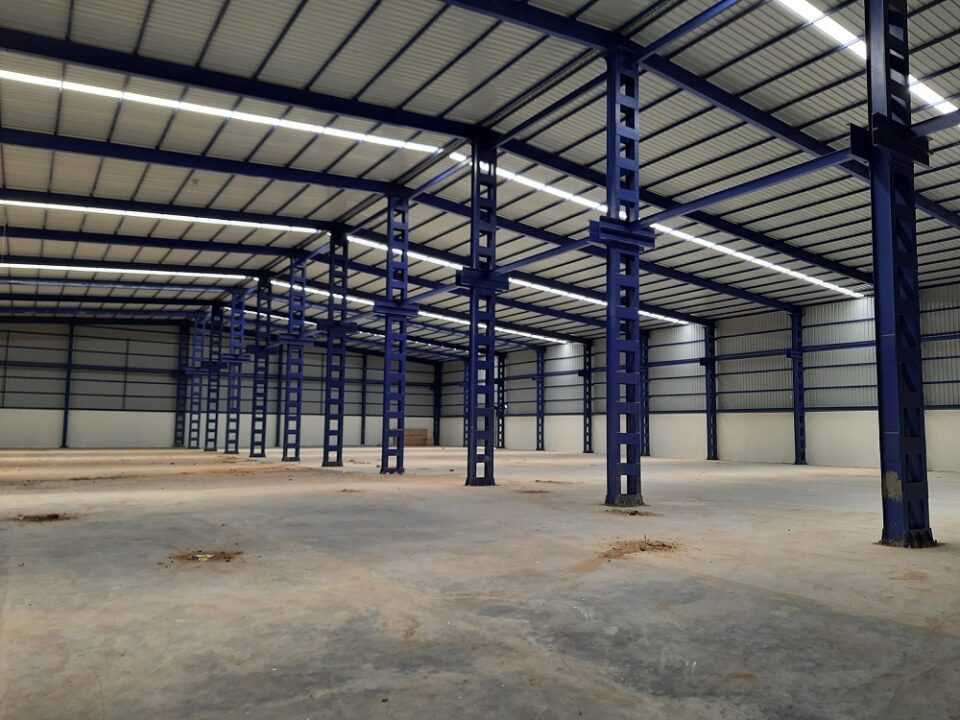In the ever-evolving landscape of business, small enterprises often face unique challenges, especially when it comes to storage and logistics. Finding a suitable warehouse for rent can be daunting, but shared warehousing is emerging as an attractive solution. This innovative approach allows multiple businesses to share a single warehouse space, providing numerous advantages for small businesses looking to optimize their operations.
Cost Efficiency
One of the most significant benefits of shared warehousing is cost efficiency. Renting a warehouse space for rent individually can be expensive for small businesses, especially those just starting. By sharing a warehouse, businesses can significantly reduce their overhead costs. This shared model allows companies to split rent, utilities, and maintenance expenses, making it financially viable for startups and smaller enterprises.
For small businesses, every dirham counts. Reducing overhead costs enables owners to allocate more resources towards other essential aspects of their operations, such as marketing, product development, and customer service. As a result, shared warehousing not only saves money but also fosters growth and sustainability.
Flexibility and Scalability
Another advantage of shared warehousing is the flexibility it offers. Traditional warehouse leases often require long-term commitments, which can be a burden for small businesses. In contrast, shared warehousing arrangements typically offer more flexible lease terms, allowing companies to adjust their space according to their needs.
As a small business grows, its storage needs may change. Shared warehousing provides the scalability necessary to accommodate these changes. Whether a business needs more space during peak seasons or wants to downsize during slower periods, shared warehousing allows for easy adjustments without the stress of negotiating new leases.
Access to Modern Facilities
Small businesses often struggle to access modern warehousing facilities that can enhance their operational efficiency. Shared warehousing spaces typically come equipped with advanced technology, including inventory management systems, loading docks, and security features. By sharing these facilities, small businesses can benefit from the same high-quality infrastructure that larger companies enjoy.
This access to modern amenities not only improves efficiency but also enhances the overall customer experience. Efficient inventory management and quick order fulfillment can lead to satisfied customers and increased sales, which is vital for small businesses looking to compete in today’s market.
Networking Opportunities
Sharing a warehouse with other businesses opens the door to valuable networking opportunities. Collaboration with other companies can lead to partnerships, joint ventures, and shared resources. In a shared warehousing environment, small business owners can learn from one another, share best practices, and even collaborate on logistics.
These connections can lead to new customers and business opportunities. Networking within a shared space can be particularly beneficial for startups looking to establish themselves in the market. The relationships formed in a shared warehousing environment can result in innovative solutions and growth opportunities that might not have been possible otherwise.
Reduced Risk
For small businesses, taking risks is a part of growth, but it is essential to minimize exposure whenever possible. Shared warehousing helps reduce risk by allowing businesses to test new products or markets without committing to a full warehouse lease. If a new product line or market doesn’t perform as expected, businesses can easily adjust their storage needs without facing significant financial penalties.
This reduced risk fosters a more agile business environment, allowing small businesses to innovate and adapt to market changes more effectively. By sharing resources, businesses can experiment with new ideas while keeping costs manageable.
Simplified Operations
Managing logistics can be complex, especially for small businesses that lack dedicated resources. Shared warehousing simplifies operations by centralizing storage and distribution in one location. This setup allows businesses to streamline their supply chain processes, improving efficiency and reducing errors.
Additionally, many shared warehouses offer integrated services, such as logistics management and fulfillment. These services can help small businesses focus on their core competencies while leaving logistics to the experts. By simplifying operations, shared warehousing allows small businesses to be more productive and competitive.
Conclusion
Shared warehousing offers a compelling solution for small businesses looking to optimize their logistics and reduce costs. The benefits of cost efficiency, flexibility, access to modern facilities, networking opportunities, reduced risk, and simplified operations make shared warehousing an attractive option.
For small business owners in the UAE, exploring a warehouse for rent in a shared space could be a game-changer. By leveraging shared warehousing, businesses can not only save money but also create an environment that fosters growth, collaboration, and innovation.
As the market continues to evolve, embracing shared warehousing could position small businesses for greater success in a competitive landscape. Whether you’re just starting or looking to scale your operations, shared warehousing is a strategic choice that can help you achieve your business goals.


